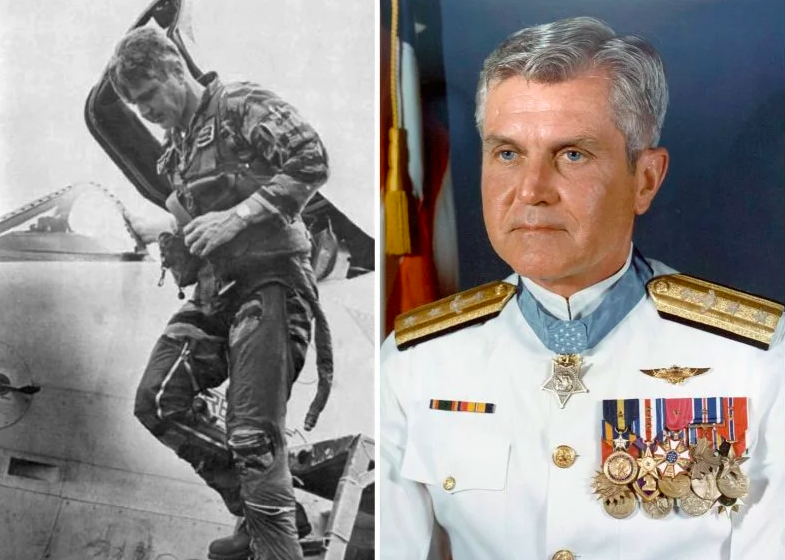America's Most Famous War Prisoners
Updated on 4/9/2024
In the annals of American history, there are tales of bravery, sacrifice, and resilience that echo through generations.
Among these stories are those of American prisoners of war (POWs) who endured unimaginable hardships and emerged as symbols of courage and fortitude.
From the jungles of Vietnam to the deserts of Iraq, these individuals faced captivity with unwavering resolve, their experiences etching indelible marks on the collective consciousness of a nation.
Let’s explore the remarkable stories of some of America’s most famous war prisoners, intertwined with acts of communication such as sending letters, phone calls, and sharing photos.

- John McCain (Arizona): A Warrior’s Spirit Tested
Born in Coco Solo, Panama Canal Zone (a U.S. territory at the time), John McCain’s name is synonymous with courage and resilience in the face of adversity. As a naval aviator during the Vietnam War, McCain’s aircraft was shot down over North Vietnam in 1967.
Captured by the enemy, he endured over five years of captivity, including torture and solitary confinement.
Despite the brutality inflicted upon him, McCain’s spirit remained unbroken. His defiance in the face of adversity and eventual release in 1973 marked the beginning of a legendary political career, where he continued to serve his country with honor and distinction.
Throughout his captivity, McCain communicated with fellow prisoners through secret messages and smuggled letters, maintaining hope and solidarity amidst the harsh conditions.

- Louis Zamperini (California): Unbroken Amidst the Storm
Louis Zamperini’s journey from Olympic athlete to POW is a testament to the resilience of the human spirit. Born in Olean, New York, Zamperini grew up in California. Serving as a bombardier in the U.S. Army Air Forces during World War II, Zamperini’s plane crashed into the Pacific Ocean in 1943.
Surviving on a raft for over a month, he was eventually captured by the Japanese Navy and endured two years of brutal captivity.
Zamperini’s remarkable story of survival and forgiveness, chronicled in Laura Hillenbrand’s “Unbroken,” continues to inspire readers worldwide, reminding us of the power of hope and resilience in the face of unimaginable adversity.
Throughout his internment, Zamperini exchanged letters with his family, offering glimpses of hope and courage amidst the darkness of war.

- Jeremiah Denton (Alabama): Blinking Truth in the Darkness
Jeremiah Denton’s defiant act of courage under duress captured the world’s attention during the Vietnam War.
Born in Mobile, Alabama, Denton was shot down over North Vietnam in 1965, taken prisoner, and subjected to years of torture and mistreatment.
In a televised propaganda interview, Denton ingeniously blinked the word “TORTURE” in Morse code, signaling to American intelligence agencies the harsh realities faced by POWs.
His courageous act became a symbol of resistance and solidarity among his fellow captives, reaffirming the resilience of the human spirit in the darkest of times.
Despite the isolation of captivity, Denton cherished the occasional letters he received from his family, providing solace and strength in the face of adversity.

- Jessica Lynch (West Virginia): A Symbol of Survival
Jessica Lynch’s harrowing ordeal as a POW during the Iraq War captivated the nation’s attention in 2003.
Born in Palestine, West Virginia, Lynch served as a Private First Class in the U.S. Army. Her convoy was ambushed by Iraqi forces, and she was captured.
Held captive for nine days before being rescued in a daring Special Forces operation, Lynch’s story of survival and resilience became emblematic of the sacrifices made by American servicewomen in the line of duty.
Despite the chaos of war, Lynch treasured the letters and photos sent by her loved ones, serving as reminders of home and fueling her determination to endure captivity.

- James Stockdale (Illinois): Leadership in Captivity
James Stockdale’s unwavering leadership and resilience during his time as a POW in Vietnam set him apart as a true hero.
Born in Abingdon, Illinois, Stockdale was shot down in 1965 and endured over seven years of brutal captivity, including torture and solitary confinement.
Despite the adversity, he provided inspiration and guidance to his fellow prisoners, earning the respect and admiration of all who knew him. Stockdale’s courageous spirit and commitment to duty were recognized with the Medal of Honor, cementing his place in American military history.
Through clandestine messages and occasional phone calls with fellow prisoners’ families, Stockdale maintained a sense of connection and camaraderie amidst the isolation of captivity.
In conclusion, the stories of America’s most famous war prisoners serve as powerful reminders of the resilience and fortitude of the human spirit.
Despite facing unimaginable hardships, these individuals refused to surrender to despair, embodying the highest ideals of courage, sacrifice, and perseverance.
Their legacies endure as beacons of hope and inspiration, inspiring future generations to confront adversity with unwavering resolve and determination, even in the simple acts of sending letters, making phone calls, and sharing photos amidst the chaos of war.